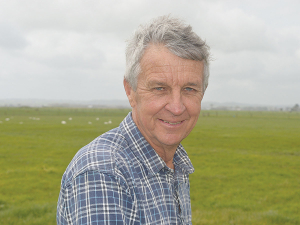Fonterra Suppliers Confident in Mainland Dairy Future
Fonterra's 460 milk suppliers in Australia, who will switch to Lactalis end of this month, are unfazed with the impending change.
 Former Fonterra director Greg Gent is delighted with the co-op’s plans to shrink the size of its board.
Former Fonterra director Greg Gent is delighted with the co-op’s plans to shrink the size of its board.
A former Fonterra director is thrilled that the co-operative is looking at reducing its board size, eight years after he successfully co-sponsored a motion for farmer shareholders.
Ruawai farmer Greg Gent, who served on the Fonterra board for 10 years, backs the plan to reduce the board size from 11 to nine - with six farmer-elected and three appointed directors.
"Big boards just don't work, it's that simple," Gent told Rural News. "I've been on them."
He thinks a seven or eight-member board is ideal for the co-operative.
"But it's a co-operative and there's a function back to farmers, so I think that's about right. At least they are doing it."
At the 2015 annual meeting, Gent and another former director Colin Armer introduced a remit to reduce the board size to nine. The motion was passed by 55% of farmers who voted. However, it failed to reach the 75% threshold required to trigger a change in Fonterra's constitution.
After the AGM in 2015, the then Fonterra board decided not to act on the remit. Current chair Peter McBride says the proposal to reduce the size of the co-operative's board has unanimous support from sitting directors.
McBride says the board will reduce from 11 to 9 only if farmer shareholders give the green light at the co-operative's annual general meeting later this year.
"At the end of the day, farmers will decide, and we will respect their decision," he told Rural News.
However, McBride doesn't expect too much opposition to the proposal.
A media report recently named appointed director Clinton Dines and farmer director Leonie Guiney as one of the directors who could be forced to leave next year to allow for a nine-member board.
But McBride says nothing will happen until farmer shareholders approve the proposal. Fonterra directors will discuss the proposal with farmers during a round of shareholder meetings planned for later this month.
Fonterra directors retire by rotation; next year McBride and Guiney who both joined the board in 2018, come up for re-election. Guiney had previously served on the board between 2014 and 2017. Fonterra's charter states that a director should not serve more than nine years "unless the board considers that special circumstances exist to warrant an extended tenure".
Guiney, a South Canterbury farmer, supports reducing the board size.
"It's future focused and will help ensure board dynamics are optimised to best serve out farmer owners," Guiney says.
She says the recent media story implied "dysfunction in the Fonterra board, which is simply not the case today".
"Since my re-election to the board of Fonterra, I have experienced a cultures that encourages constructive dissent and where all directors' contributions are welcomed and respected.
"More importantly, the result is better outcomes for Fonterra."
The Fonterra board says the co-op's priorities for the coming years could be more efficiently delivered by a smaller board.
"My personal experience, leading or being part of leadership groups, is that in smaller groups people are more engaged and able to share their perspectives in a more meaningful way," says McBride.
Castle Ridge Station has been named the Regional Supreme Winner at the Canterbury Ballance Farm Environment Awards.
The South Island Dairy Event has announced Jessica Findlay as the recipient of the BrightSIDE Scholarship Programme, recognising her commitment to furthering her education and future career in the New Zealand dairy industry.
New Zealand and Chile have signed a new arrangement designed to boost agricultural cooperation and drive sector success.
New DairyNZ research will help farmers mitigate the impacts of heat stress on herds in high-risk regions of the country.
Budou are being picked now in Bridge Pā, the most intense and exciting time of the year for the Greencollar team – and the harvest of the finest eating grapes is weeks earlier than expected.
The Real Estate Institute of New Zealand (REINZ) has released its latest rural property report, providing a detailed view of New Zealand’s rural real estate market for the 12 months ending December 2025.